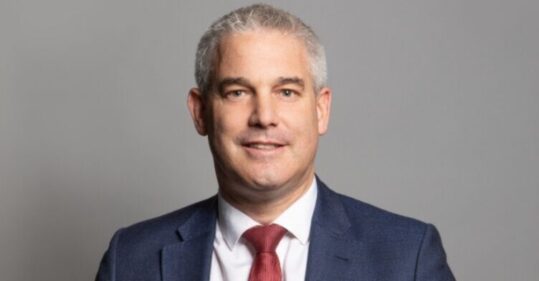Better ‘understand and recognise contributions’ of primary care, health secretary urged

The health secretary has been urged to better understand and recognise the contributions of primary care after he called for more major health conditions to be treated together.
Steve Barclay recently claimed that major conditions were ‘treated separately’ in the NHS, but nursing leaders have dismissed his comments and pointed out that joined-up care for patients with multi-morbidity was already a common feature of primary care.
Mr Barclay, writing in the Daily Express last week, said that while many patients experienced multiple major conditions, ‘for too long our healthcare services have treated these conditions separately’.
Writing about an upcoming major conditions strategy, the health secretary said that the Department of Health and Social Care would be consulting on how to improve joined-up care.
However, Ellen Nicholson, advanced nurse practitioner and Royal College of Nursing (RCN) General Practice Nursing Forum co-chair, told Nursing in Practice she was ‘disappointed’ by the health secretary’s comments and stressed ‘this has clearly been happening for years’.
Related Article: ‘Patients not prisoners’: Palliative care nursing behind bars
‘There is a hugely long history within general practice of managing patients with multi-morbidity. Anybody who did a quick Google search would come up with long-term condition clinics,’ she said.
Ms Nicholson added that she would like to see the health secretary better ‘understand healthcare and recognise the contributions that go on’.
She added: ‘General practice is the backbone of the NHS, and if we want care to improve, we really need to invest in care in the community: primary care, community care, and social care.’
The health secretary was writing in relation to the upcoming publication of a major conditions strategy from the government.
The government has previously identified six major groups of conditions that account for around 60% of ill health and early mortality in England – cancer, cardiovascular diseases, chronic respiratory diseases, dementia, mental ill health and musculoskeletal disorders – that will be at the core of a new approach.
Mr Barclay has said that the strategy, currently under consultation until 27 June, will ‘set the blueprint’ for ensuring patients receive joined-up care.
The health secretary wrote in the Daily Express: ‘It makes sense scientifically to consider people’s health needs in the round and this strategy will focus on how we can do more to understand patients’ experiences.’
However, Dr Crystal Oldman, chief executive at the Queens Nursing Institute (QNI), told Nursing in Practice that enhancing joined-up care would need more investment.
Related Article: NHSE confirms dates and eligibility for autumn Covid and flu jabs
Dr Oldman said that while providing personalised and holistic care for patients is ‘one of the objectives of general practice and of district nursing services’, this does not always succeed due to ‘barriers around shared records and incompatible computer systems’.
Dr Oldman added: ‘These are the challenges that government should be looking at, to facilitate joined-up and holistic care.
‘Both specialists and generalist nurses in the community have a vital role to play and greater investment is needed in the nursing workforce in the community for their full potential to be realised.’
A Department of Health and Social Care spokesperson said: ‘We are grateful for the tireless work and dedication of primary care staff and, recognising the challenges they face in recovering from the pandemic, we recently announced a Primary Care Recovery Plan focused on supporting staff, improving technology and reducing bureaucracy.
‘One in four people in England currently live with two or more major, long-term conditions and our Major Conditions Strategy will focus on improving care and health outcomes for these people.
Related Article: QICN bids farewell to Dr Crystal Oldman as she retires from CEO role
‘Taking a more integrated, joined-up approach to care and building on actions that we have already taken through the NHS Long Term Plan, we will also explore how data and technology can be harnessed to improve health and care outcomes.’
This article has been updated with a comment from the DHSC

See how our symptom tool can help you make better sense of patient presentations
Click here to search a symptom




